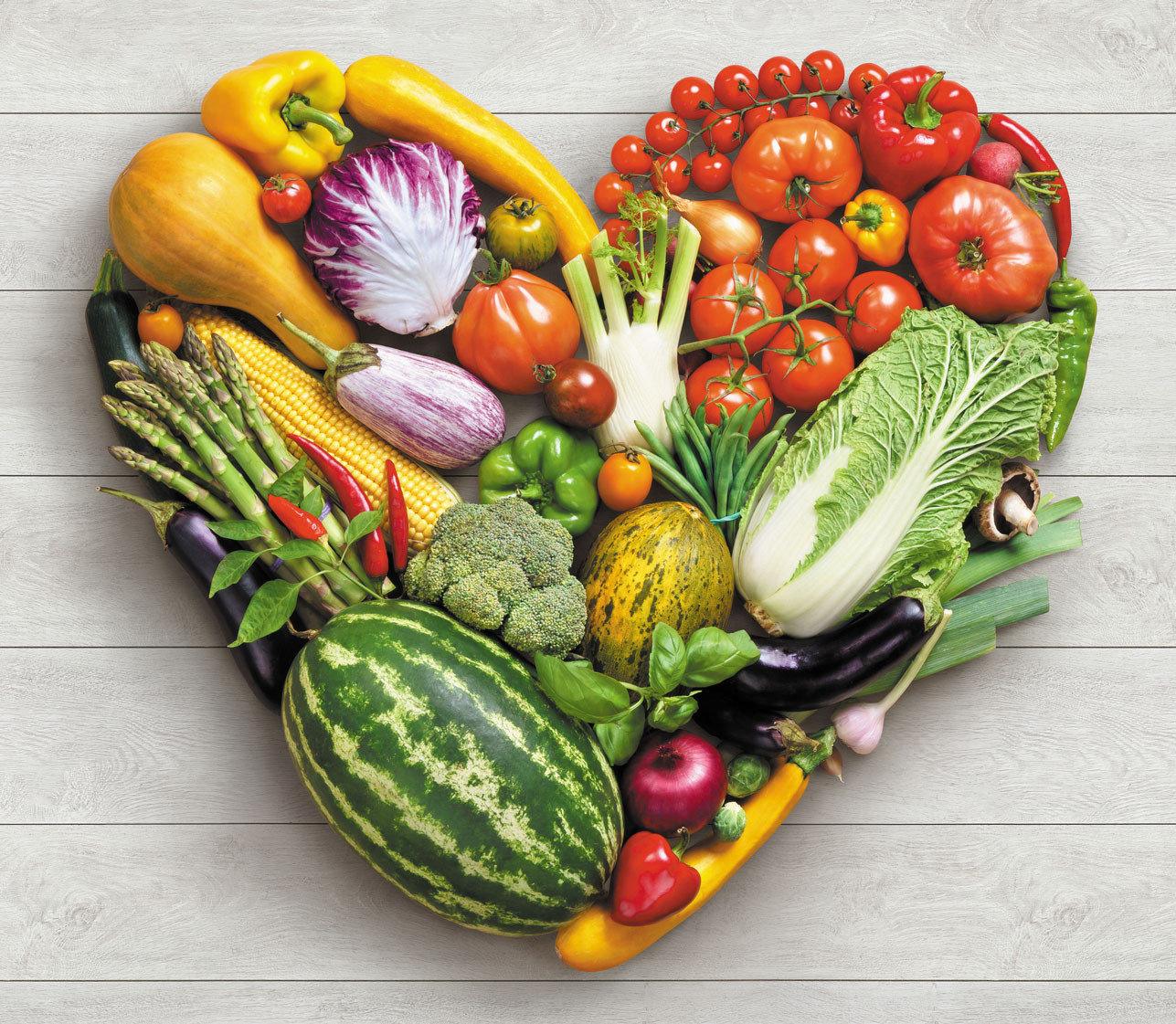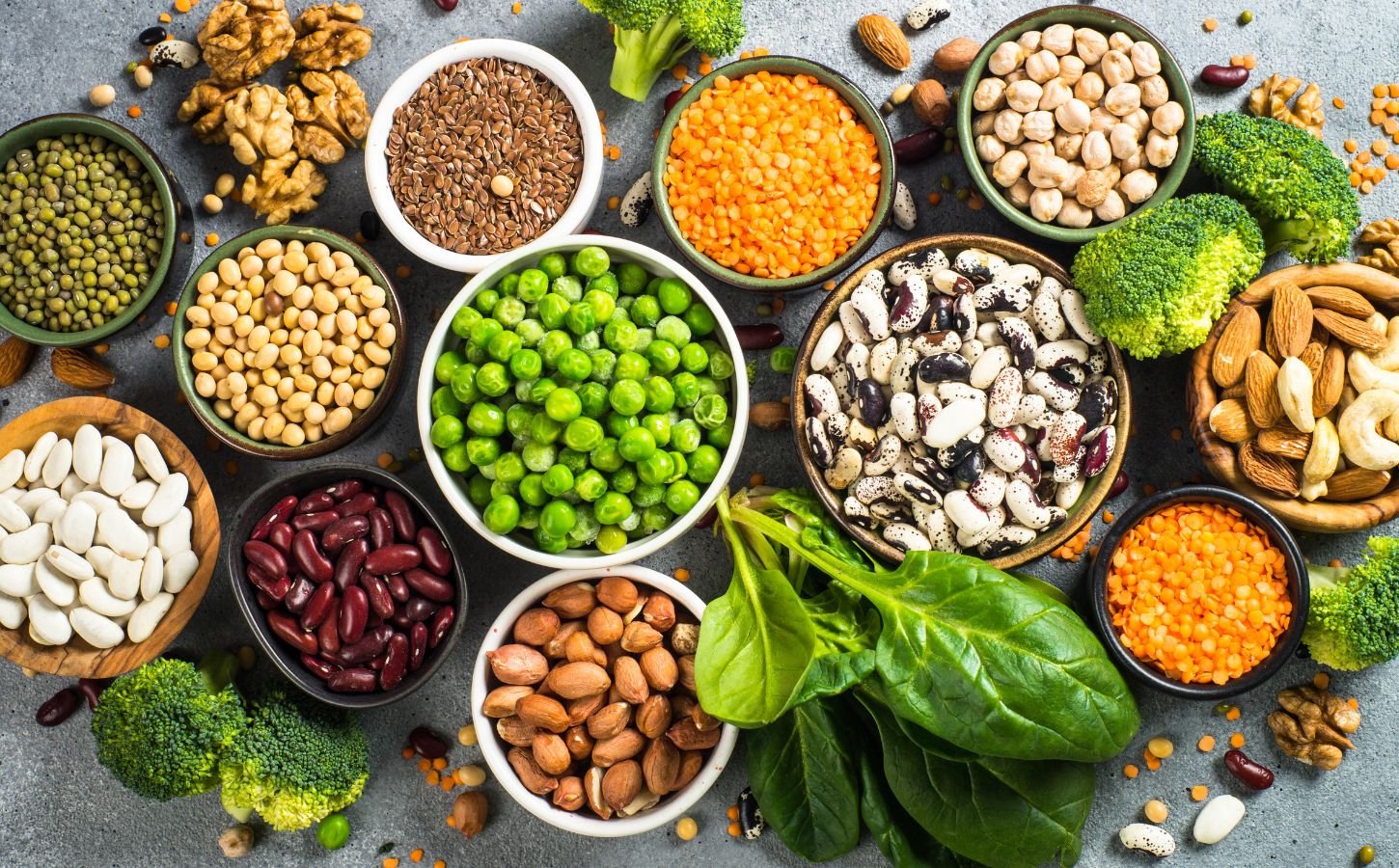How to Make Gluten Free BBQ Sauce from Scratch: A Step-by-Step Tutorial
How to Make Gluten Free BBQ Sauce from Scratch: A Step-by-Step Tutorial
Blog Article
All Concerning Healthy And Balanced Food: Advantages of Checking Out Plant Based Alternatives
The conversation surrounding plant-based diet plans has gained significant focus over the last few years. Several people are checking out the potential health advantages, dietary advantages, and environmental impacts connected with these nutritional options. As people come to be a lot more familiar with their food's influence on health and sustainability, inquiries develop about the usefulness of taking on such a way of life. What specific adjustments can one expect, and how might these selections improve not only individual health and wellness but also the planet's future?
Recognizing Plant-Based Diet Plans
Numerous individuals associate plant-based diet regimens primarily with vegetarianism or veganism, these diet regimens can encompass a large variety of consuming patterns that prioritize entire, minimally refined plant foods. Such diet plans often consist of fruits, veggies, whole grains, seeds, nuts, and beans, while eliminating or limiting pet items. This flexibility enables people to tailor their dietary selections according to personal preferences and nutritional demands. Some may embrace a largely plant-based diet while still sometimes consuming meat or milk, frequently referred to as a flexitarian strategy. The emphasis remains on integrating even more plant foods, which can bring about a varied array of meals and flavors. Recognizing these various interpretations of plant-based eating is crucial for appreciating its ease of access and charm in modern food society.
Wellness Benefits of Plant-Based Foods
The health and wellness advantages of plant-based foods are substantial, supplying a nutrient thickness benefit that sustains overall well-being. Research indicates that these foods can improve heart health and play a vital function in efficient weight administration. By integrating a lot more plant-based choices, people may improve their dietary choices and promote long-term wellness.
Nutrient Thickness Benefit
Nutrient thickness plays a necessary function in the health and wellness benefits of plant-based foods, making them a compelling selection for those looking for a well balanced diet plan. Plant-based foods, such as fruits, vegetables, legumes, nuts, and whole grains, are often rich in essential vitamins, minerals, and anti-oxidants while being reduced in calories. This high nutrient density allows people to eat fewer calories while still meeting their dietary requirements. Furthermore, these foods are packed with nutritional fiber, advertising gastrointestinal health and assisting in weight administration. By integrating nutrient-dense plant-based options, customers can improve their general wellness, support their body immune systems, and minimize the danger of persistent illness. Ultimately, the nutrient thickness of plant-based foods highlights their significance in a health-conscious way of living.
Heart Health And Wellness Improvement

Weight Administration Support
Along with advertising heart wellness, a plant-based diet plan can substantially help in weight management. This nutritional approach stresses entire foods such as fruits, veggies, beans, nuts, and whole grains, which are usually reduced in calories and higher in fiber contrasted to animal-based products. The high fiber material aids boost satiation, minimizing total calorie intake. Plant-based diet plans are often rich in crucial nutrients while low in undesirable fats, making it less complicated to maintain a healthy weight. Study shows that individuals who embrace a plant-based lifestyle tend to have lower body mass indexes (BMIs) and experience even more effective weight reduction contrasted to those that consume meat-heavy diets. As a result, welcoming plant-based alternatives is a strategic option for efficient weight monitoring
Nutritional Worth of Plant-Based Active Ingredients
Plant-based ingredients are rich in vital nutrients, using a varied selection of vitamins, minerals, and anti-oxidants that add to total wellness. A contrast of healthy protein resources discloses that while pet items are usually viewed as superior, many plant-based options give sufficient healthy protein and other helpful substances. Comprehending the nutritional value of these components can help individuals make informed dietary options.
Necessary Nutrients in Plants
Nutrient-rich active ingredients discovered in plants use a varied variety of necessary minerals and vitamins that contribute significantly to overall health. These active ingredients are abundant in vitamins A, C, and K, which support immune function, vision, and blood clot, specifically. Furthermore, plants provide vital minerals such as potassium, calcium, and magnesium, essential for heart health, muscular tissue function, and bone strength. The existence of fiber in plant-based foods aids food digestion and promotes a healthy digestive tract microbiome. Antioxidants, located generously in fruits and vegetables, assistance combat oxidative stress and anxiety and minimize inflammation. Lots of plant foods are reduced in calories yet high in nutrients, making them an exceptional choice for those seeking to keep a healthy weight while making certain optimal nutrient consumption.

Contrasting Healthy Protein Sources
Protein resources differ significantly in their nutritional accounts, with plant-based active ingredients supplying one-of-a-kind benefits. Unlike animal proteins, which often contain hydrogenated fats and cholesterol, plant healthy proteins tend to be lower Find Out More in these unhealthy parts. Legumes, nuts, seeds, and entire grains are rich in important amino acids, fiber, vitamins, and minerals. For instance, lentils provide high healthy protein material alongside substantial iron and folate, while quinoa is a total protein, supplying all 9 important amino acids. Furthermore, plant-based healthy proteins are commonly accompanied by anti-oxidants and phytochemicals that support total health and wellness. The change to plant-based protein resources not only boosts nutritional consumption but additionally aligns with lasting dietary techniques, decreasing ecological impact and advertising long-term health and wellness advantages.
Environmental Influence of Plant-Based Eating
As understanding of environment modification expands, many people are discovering sustainable nutritional selections that can significantly decrease their environmental impact. Plant-based consuming has emerged as a substantial contributor to minimizing greenhouse gas emissions, which are primarily associated with livestock production. The growing of fruits, veggies, legumes, and grains commonly requires fewer resources, such as water and land, contrasted to pet farming. Additionally, plant-based diets can cause lowered logging, as much less land is needed for grazing livestock or growing animal feed. By moving in the direction of plant-based alternatives, customers can sustain biodiversity and advertise healthier communities. Generally, welcoming plant-based consuming not just advantages individual wellness but also represents an important step toward environmental sustainability and conservation efforts.
Overcoming Common Misconceptions
While many individuals recognize the benefits of a plant-based diet, numerous misunderstandings typically prevent them from completely accepting this way of life. A common belief is that plant-based diets do not have enough healthy protein; nevertheless, many plant sources, such as legumes, nuts, and tofu, provide ample healthy protein. In addition, some presume that this diet plan is costly, when as a matter of fact, staples like beans, rice, and seasonal vegetables can be fairly affordable. An additional misconception is that plant-based consuming is excessively restrictive, whereas it in fact see it here supplies a varied range of foods and flavors. Ultimately, many worry that a plant-based diet may result in shortages, yet with appropriate planning, individuals can get all required nutrients, consisting of minerals and vitamins, while delighting in a variety of delicious dishes.
Tips for Transitioning to a Plant-Based Way of life
Making the change to a plant-based lifestyle can be an improving experience, though it typically calls for some assistance to browse the initial adjustments. First, people are encouraged to start progressively, incorporating even more fruits, veggies, legumes, and entire grains right into their meals while reducing meat and dairy products usage. Meal preparation is navigate to this site crucial; preparing a regular menu can assist ease the adjustment and avoid final harmful choices. Discovering brand-new dishes and cooking methods can also improve the experience and maintain enjoyment regarding plant-based consuming. In addition, signing up with support system or communities can offer motivation and share useful ideas. Ultimately, remaining educated concerning nourishment warranties well balanced dishes, preventing deficiencies while fostering a healthy, satisfying plant-based lifestyle.
Delicious Plant-Based Dish Ideas
Checking out delicious plant-based meal concepts can inspire individuals to welcome a more healthy diet regimen. One popular choice is a passionate quinoa salad, including cherry tomatoes, cucumber, and a zesty lemon-tahini dressing. An additional fave is a tasty lentil stew, loaded with carrots, celery, and great smelling herbs, ideal for a soothing supper. For breakfast, overnight oats made with almond milk, chia seeds, and topped with fresh berries supply a nourishing start to the day. Additionally, a lively veggie stir-fry with tofu and a selection of vivid veggies can be a quick yet satisfying meal. Velvety avocado toast on whole-grain bread, sprinkled with seeds and flavors, uses a basic yet savory treat. These dishes display the selection and splendor of plant-based consuming.

Often Asked Questions
Can a Plant-Based Diet Regimen Supply Enough Healthy Protein?
The concern of whether a plant-based diet can give adequate protein is usual. Many sources, consisting of legumes, nuts, seeds, and entire grains, can meet healthy protein needs effectively, sustaining a balanced and nourishing diet for people.
Are Plant-Based Diets Ideal for Children?
The viability of plant-based diets for kids depends on cautious planning. Appropriate nutrients must be ensured, consisting of proteins, vitamins, and minerals. With appropriate guidance, such diet plans can sustain healthy growth and growth in children.
Exactly how Do I Eat in restaurants on a Plant-Based Diet?
Eating in restaurants on a plant-based diet regimen involves seeking dining establishments with diverse menus, requesting alterations, and exploring vegan-friendly options. Planning in advance and communicating dietary preferences can improve the eating experience while maintaining dietary options.
What Are Common Irritants in Plant-Based Foods?
Usual allergens in plant-based foods include soy, gluten, nuts, and seeds - Plant Based Chicken. Individuals adhering to a plant-based diet regimen ought to understand these allergens and check out tags meticulously to avoid unfavorable reactions and ensure risk-free usage
Can Plant-Based Diets Aid With Weight Reduction?
Research study suggests that embracing a plant-based diet plan might assist in fat burning as a result of its generally lower calorie density and higher fiber content. This mix can boost satiation, aiding people handle their caloric intake efficiently. Numerous people associate plant-based diets mainly with vegetarianism or veganism, these diet regimens can incorporate a vast array of consuming patterns that prioritize whole, minimally refined plant foods. Nutrient thickness plays a crucial duty in the health and wellness benefits of plant-based foods, making them a compelling selection for those looking for a balanced diet. Plant-based diets have actually been shown to considerably boost heart health and wellness, as they usually consist of components that support cardio feature. In addition to advertising heart health and wellness, a plant-based diet plan can considerably assist in weight administration. A common idea is that plant-based diet plans lack enough protein; nonetheless, many plant sources, such as beans, nuts, and tofu, supply sufficient healthy protein.
Report this page